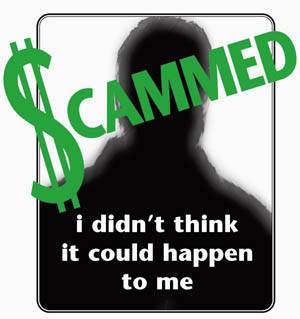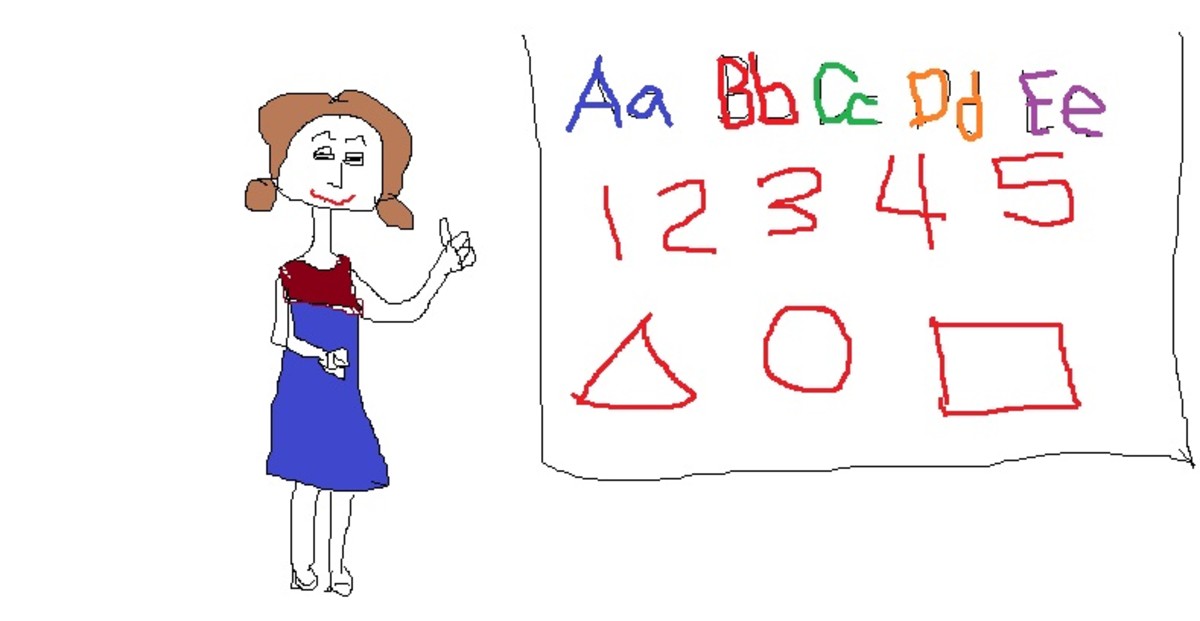- HubPages»
- Business and Employment»
- Small Businesses & Entrepreneurs»
- Mail Order & Internet/Web Businesses
Freelance Writers and Online Money (PayPal) Scams: How to Keep Your Online Earnings Safe 100% of the Time
Online Money Scams & How to Avoid Them
I'm a freelance writer, so of course I have a PayPal account. I also write for various online outlets (eg, Hubpages, eHow and AssociatedContent mainly). All of these sites pay freelance writers via PayPal. In addition to this, I also receive most payments from my freelance writing clients via PayPal.
I also sell ebooks on freelance writing, promote affiliate products and instruct ecourses. All payments come via PayPal. I divulge all this to highlight that on any given day, there’s a lot going on in my PayPal account. Hence, I try to stay abreast of what’s going on in the way of PayPal scams – and indeed – online money and banking scams in general.
A few new ones have slithered onto the scene lately that I hadn’t seen before. However, by using good ole common sense, I was able to avoid being taken by them. A less experienced freelance writer (or web surfer) may not.
Following is a "PayPal" scam” email and an "AssociatedContent" scam email. The reason the company names are in quotes is because they are not the offenders. These are legitimate companies that you needn’t fear doing business with. However, online scammers use the names of these companies to perpetrate scams. So, be warned.
Now, on to the scam emails you may run across and how to avoid being taken in by them -- 100% of the time.

AssociatedContent.com Scam Alert
The subject line of this email read: "Please confirm payments and PayPal email address"
The "From" email address was: admin@associatedcontent.com
The proposed email from AC read as follows:
Before Associated Content can pay you, we need you to confirm your PayPal email address for the following payment(s). bonus $X Performance Bonus: December 2008
The address we currently have on file for you is: XXX (they had my correct PayPal address, which is kinda scary because it makes it more legit). To confirm this address, click here (this was a link). For non-html email users, please paste this URL into your browser to confirm your PayPal email address (they had an official-looking email address here with associatedcontent.com in it)
To change your PayPal email address, log in (log in was a link) to www.associatedcontent.com and click on "Update" from the top-right corner of the My Account tab. Important: After changing your PayPal email address, please click on the confirmation link above. We cannot send payment until your new address is confirmed.
### [End of email]
Now as anyone who’s ever written for AC knows, sometimes you’ll get an email from them like this around the time of your monthly pay out (usually when you haven’t confirmed your account). Hence, if you’re a new or just unsuspecting freelance writer you may very well get taken by this scam, thinking that it was a legitimate email from AC.
It's NOT!
How did I handle this? I immediately went to my favorite browser (in the suggestions below you'll see why this is important) and logged in to my AssociatedContent account from there to see if there was a notice from the company about verifying my account information.
There wasn't. AND, my payment was already in progress, just like it is every month.
The reason this email was super slick though is because not only did it list the correct amount of my PayPal payment; again, they had my email address correct too.
But, I still disregarded this as official correspondence from AC because they wouldn't ask you to verify account information. This fact is what caught my attention.
When emails ask you to click on a link IN THE EMAIL to verify account information – STOP, DON’T DO IT.
Log into your account from your browser and see if the company in question has sent you any correspondence about your account. NEVER, EVER click on a link in an email that asks you to divulge sensitive information (eg, social security number, banking account info, password info, etc).
Always remember this.
PayPal Email Scam Alert
The second scam email I received along these lines was one from, ostensibly, "PayPal". The subject line read "Dispute Transaction". The from email was "Service@PayPal.com". It read as follows:
Dear PayPal Member,
This email confirms that you have paid robertoelectronics (roberto211@aol.com) $439.00 USD using PayPal. This credit card transaction will appear on your bill as "PAYPAL robertoelectronics*".
###
After the invoice particulars, there was a notice that read:
"If you haven't authorized this charge, click the link below to cancel the payment and get a full refund."
ALARM BELLS SHOULD BE GOING OFF WHEN YOU SEE THE WORDS, “Click the link below.” Remember never, ever click on a link in an email that asks you to divulge sensitive information.
Once I read this, I knew right away that it was a scam. How?
Because PayPal doesn't notify you of "unauthorized charges" via email. They only send "disputed transaction" notices – and they do it from your account internally.
This means that you have to actually be logged into your PayPal account to read the particulars of the correspondence (dispute) from them. This makes sense because it means you don't have to worry about receiving notices like this scam email from them.
This kind of PayPal scam email was a first for me. I get the scam PayPal "verify your account information" emails every day - literally (sometimes five, six or seven times a day). That’s how lucrative these types of scams are because people actually follow through – and have their accounts wiped out.
Upon reading the email, once again I logged into PayPal from my browser (as opposed to clicking through from the email the scammers sent) and checked on my account.
Again, all was well with my account.
Online scammers are getting smarter, which means you have to be even more diligent about keeping your hard-earned money safe online. Following are concrete suggestions that will help you do just that -- 100% of the time.
How to Keep Your Online Money Accounts Safe 100% of the Time
The following suggestions are for PayPal accounts, bank accounts, money market funds - or any "money/confidential accounts" you access online.
Never Click a Link in an Email Sent to You: Ever! I can’t stress this enough -- even if you conduct business with a company. These are phishing scams.
All the scammers need to wipe your account out is to get your access information. This is the reason they ask you to "verify" your account information. Once you do that, your money goose is cooked. They can go in and clean your accounts out. And usually, there's no recourse as the scammers are in some far away land - untouchable by laws in your home country (the United States and Canada, for example).
Use Your Own Browser to Access Sites: Always go to your favorite browser (eg, Google, Yahoo!, Bing) and type in the name of the site yourself. Why?
Because when you type in the name of the site from your browser, you can be sure you're accessing the legitimate site, not a mirror site the scammers have set up .
I do this even when I know an email is legitimate correspondence from a company I do business with (for example, my bank). You just can never be too careful these days.
Never “Verify” Anything: Legitimate sites like your bank and PayPal WON'T ask you to verify account information in an email. They will alert you via correspondence, but they won’t ask you to “click this link” to verify information.
This is akin to a stranger calling you up and asking you for your social security number. You wouldn't give that out would you, even if they said they were calling from your bank, the IRS, etc.? Of course not.
Use the same caution and common sense.
When you sign up with sites like PayPal and online banking, YOU initiate the relationship and YOU provide the information they ask because YOU want to sign up. In short, the first move comes from you. So think of it this way when you receive these types of correspondence -- ie, as a stranger calling you up/emailing you and asking for personal information. Just don’t give it out - ever.
Tax Scam Alert
This is a common one that comes around every year. Remember, the IRS doesn't contact taxpayers via email – ever. I liken them to a fuddy duddy organization that doesn't send out email because nobody there knows how to use computers. This line of thinking helps me to remember that any ostensible notices from the IRS is a scam.
My assessment aside, the IRS takes great pains every year to let citizens know that they don't send out correspondence via email.
Don't help email online scammers steal your hard-earned money. If you do all of the above, you will keep your online money accounts safe -- safe 100% of the time (excluding professional hackers, of course; but that is a topic for another day).
Do you have specialized knowledge like this that can help others? Why not get paid to share it?
Hubpages is an easy way to dispense helpful information -- and earn money to boot! You can write about practically anything you want -- really. So sign up and start making money as a freelance writer today!



